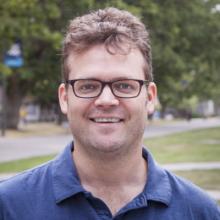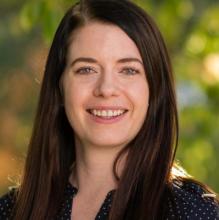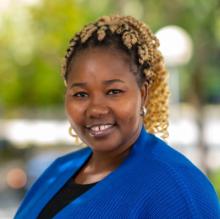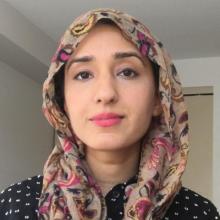Being a public scholar is the very essence of why I decided to pursue a PhD degree. It is imperative to me that the research I conduct will have an impact not only on researchers but the wider community. As a public scholar, I aim to employ creative mediums that produce results that are accessible, engaging and actionable for the public. To me, the possibilities are endless!
Research Description
Approximately 65 million individuals sustain a traumatic brain injury (TBI) every year. After a TBI, individuals experience physical, cognitive and environmental changes, which makes navigating the world different than before the injury. These changes are often not visibly apparent to others, hence providing the label "the invisible injury". Research has shown that visual mediums have an impact on public knowledge and behaviour. As such, stereotyping of people with TBI presented through films, social media and news outlets can endorse negative perceptions and shape societal attitudes. These perceptions and lack of acceptance may create barriers, more so than any of the physical and cognitive impairments. To change these perceptions, we first need to understand current public views about TBI and then implement innovative methods that will change public perception about people with TBI.
What does being a Public Scholar mean to you?
Being a public scholar is the very essence of why I decided to pursue a PhD degree. It is imperative to me that the research I conduct will have an impact not only on researchers but the wider community. As a public scholar, I aim to employ creative mediums that produce results that are accessible, engaging and actionable for the public. To me, the possibilities are endless!
In what ways do you think the PhD experience can be re-imagined with the Public Scholars Initiative?
By being part of the Public Scholars Initiative program, I have the freedom and guidance to add to the traditional outputs of a research degree. In research, knowledge production is essential; however, it is only the first step. By belonging to this program, I am equipped with the tools to go above and beyond the typical research practices and to engage key stakeholders and the public. My PhD research aims to use creative forms, such as a documentary, to change public perception about TBI. I believe that research needs to be promoted and disseminated in a manner that will invite the public to gain a better understanding of TBI – an injury that is complicated, nuanced and transformative.
How do you envision connecting your PhD work with broader career possibilities?
As a PhD student, I am provided with the opportunities to gain more than just academic knowledge. I am constantly learning and reshaping my skills as I navigate my way through this degree. I have collaborated with experts in my field and learnt various transferable skills, such as effective communication, team leadership and critical thinking. I have also gained exposure to inclusive practices, being guided by and truly understanding the sentiment "nothing about us without us". Whether I continue down the academic path or venture out into another brain injury-related field, I know that with the knowledge and expertise I have acquired, I will be able to create a positive impact in the brain injury community.
How does your research engage with the larger community and social partners?
A large part of my research is driven by collaborations with community partners. Guidance from community partners is essential, as they provide expertise on how to address and bridge the gaps that exist in brain injury research. I believe that research is not solely a journey between the researcher, participant and the data collected. I have connected with incredible organizations who have propelled our research forward, helping navigate the challenges that arise. Additionally, voices from the brain injury community will be highlighted throughout my research to provide a deeper insight into the lived experiences of many individuals around us.
Why did you decide to pursue a graduate degree?
I knew that the way forward after completing my undergraduate degree was into a research field that would enable me to understand and explore more about brain injuries. Pursuing a graduate degree has helped me delve deeper into my area of interest and opened my eyes to the many ways of conducting research. With research, there are always compelling questions that need to be addressed and answered, and by pursuing a graduate degree, it has awarded the opportunity for me to do just that.
Why did you choose to come to British Columbia and study at UBC?
UBC is renowned for its exceptional programs and the opportunities to collaborate with experts in various fields. As a person who has lived in several countries, I wanted to explore the Canadian way of life and education, and decided to pursue a master’s in Rehabilitation Sciences at UBC. After meeting with my supervisor, Dr. Julia Schmidt, I knew that this was the place for me. The years flew by, and by the time I completed my master’s, I had a distinct feeling that I was not yet done with research, and research was not done with me! My journey in this field would not have been possible without Dr. Schmidt, who has played a major role in ensuring that my learning and skills as a researcher, and as an individual, have grown and improved throughout both my master’s and PhD degrees. I feel blessed to call myself a CEDAR Brain Injury Lab member! We have a lab environment that is supportive, inclusive and appreciative of everyone, no matter the role or contribution.




